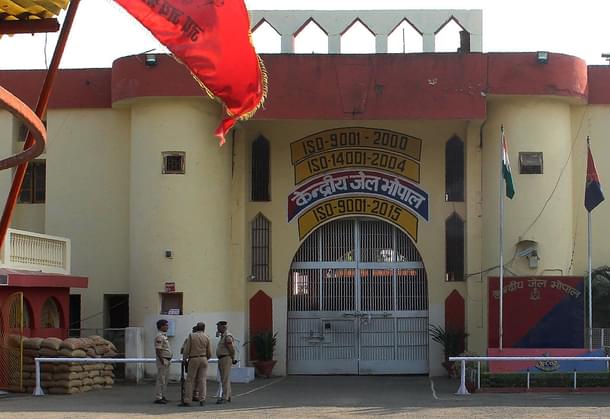Politics
Bhopal Jail-Break: The Outrage Seems More Fake Than The Encounter Itself
R Jagannathan
Nov 03, 2016, 11:25 AM | Updated 11:25 AM IST
Save & read from anywhere!
Bookmark stories for easy access on any device or the Swarajya app.


The one thing that stands conclusively proven in the Bhopal “encounter” killing of eight dangerous terror undertrials-cum-jail-breakers is this: the Madhya Pradesh police have handled the incident and its fallout ineptly, speaking in different voices on the subject (the home minister said the escapees were armed with spoons and plates that were carved into weapons, while the police said they recovered firearms and bullets, and that there was an exchange of fire with the terror suspects). The state Anti-Terror Squad has made its own statement on the subject. For this reason alone it is worth having an enquiry so that lessons, both on how the situation was handled, and how the post-encounter communications were botched, can be learnt.
What is condemnable is the motivated posturing of politicians, who think this is a good stick to beat the BJP with, since the people killed were all Muslims and former members of the banned Simi, and accused of terrorist activities. The national media has wrongly bracketed this incident along with the large list of possible “fake encounters” since the word “encounter” itself smacks of cold-blooded trigger-happiness on the part the men in uniform.
Unless more solid evidence comes to light, the outrage over the incident appears more fake than the “encounter” itself.
Let’s dispel a few myths first.
First, if we accept that there was indeed a jailbreak and that a prison guard was killed by the escapees, it automatically reduces the chance that this was an encounter, real or fake. When the police are chasing criminals, they can shoot to kill if they think escape is a possibility.
Second the two videos that have surfaced on the incident – neither of them authenticated – do not prove anything about the fakeness or genuineness of the “encounter”. In one video, the terror-accused are shown gesticulating from a hillock, and this is being interpreted as a willingness to surrender. In another video, a cop is shown shooting at a prone individual. This video is supposed to establish the cold-blooded killing of at least one of terror undertrials, some of whom had already been involved in another jailbreak before this one.
The problem with these assumptions is this: an intention to kill in cold-blood can be conclusively established only if the policeman (or policemen) concerned knew that the person lying on the ground was already dead and posed no threat to anyone. Nor can it be proved that the persons gesticulating from a hillock had only non-aggressive intentions. If not, the police action can be justified as a form or self-defence, with the intent being to protect oneself from a possible assault.
We know now that the escapees may have been only lightly armed, but could the policemen chasing them have known that in advance? Or whether the person lying on the ground was not hiding a weapon under him?
The issue must be seen also from the perspective of the policemen concerned. When faced with situations like these, the first two priorities for any policeman is to ensure that jail-breakers do not escape; they are entitled to kill if they think they will escape. Secondly, they are entitled to also fire at people who could potentially kill them.
In short, you don’t need to have a situation where your escapees are firing at you to justify returning the fire or killing them by shooting at them.
As things stand, the Inspector General of Police, Yogesh Chaudhary, has maintained that “four firearms were recovered from the encounter site. They had opened fire on the police party, forcing our force to retaliate.”
It is worth investigating whether this story is true, but even if it isn’t, the reality is that the cops had done the right thing to try and neutralise the terror accused before they escaped or perpetrated more terrorist actions in the country. There is also the possibility that the cops are dressing up a perfectly justifiable action on their part as something more dramatic so that they are not victimised by politicians later.
The one thing that needs to be done is to develop standard-operating-procedures (SOPs) for policemen in all situations that can be anticipated. How much force to use, where to shoot if it is suspected that suspects may be armed and willing to kill, how to talk coherently about an incident after it happens (and not in multiple voices as has been the case in Bhopal), how to admit a mistake if a human error has been made in situations of stress, etc.
Policemen are human, and in such situations, where they could well be accused of ineptness and face suspensions, they may well take the wrong decisions, even if they were taken in good faith. Mistakes will happen, for human beings have to react to situations where you may not have all the information necessary to use just the right amount of force. In such situations, the last thing you should do is blame the men in uniform because they may have made a mistake.
Mistakes and miscommunications are not the same as “fake encounters.”
Jagannathan is former Editorial Director, Swarajya. He tweets at @TheJaggi.





